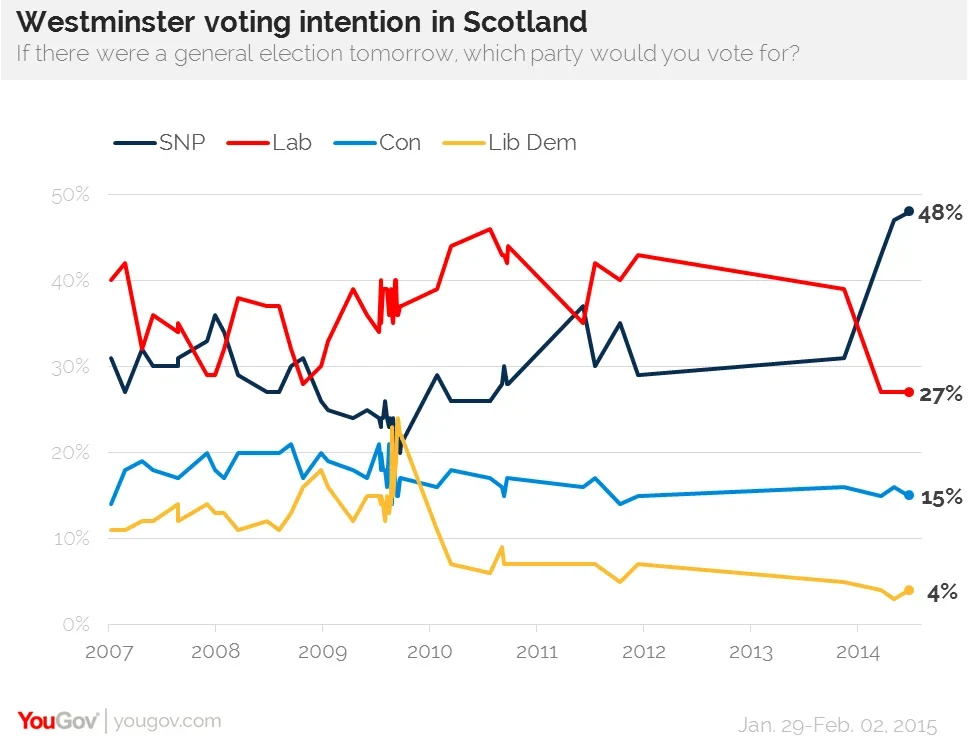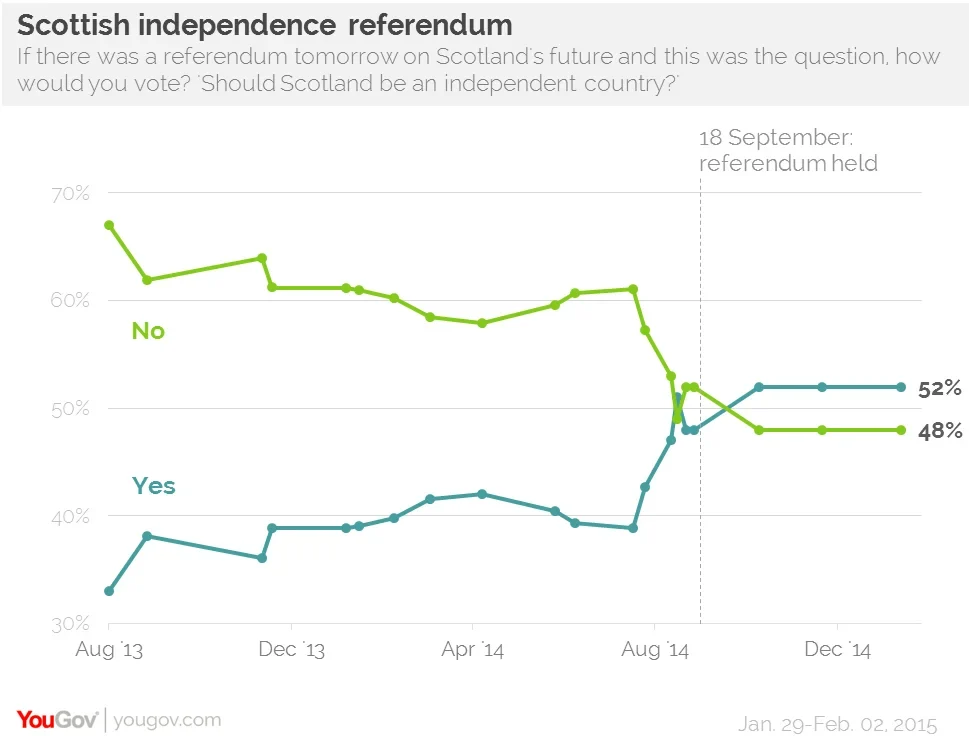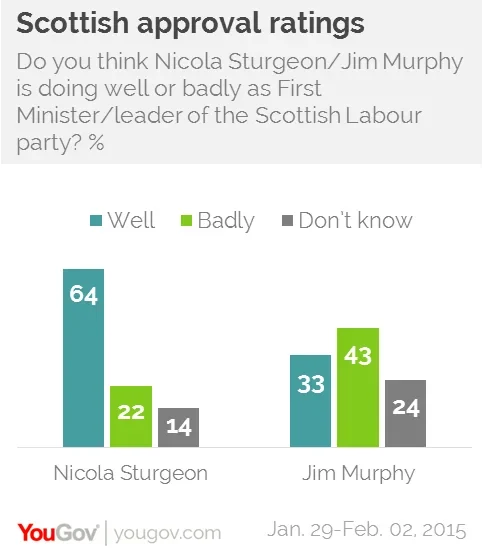The Scottish National Party has retained its lead in Scotland – and on the question of Scottish independence, Yes leads No by 4 points
The recently appointed leader of Scottish Labour, Jim Murphy, made a joint proposal with Gordon Brown yesterday to devolve further powers to Scotland. The powers would go beyond those suggested by the Smith Commission – the report formalising promises made by Westminster leaders shortly before September’s referendum – to give Scotland the final word on the ‘bedroom tax’, and the ability to set benefits in other, non-devolved areas of welfare.
Jim Murphy has been handed the task of restoring Labour’s fortunes in Scotland, but the first YouGov/Times poll of Scottish people conducted wholly after his appointment on December 13 reveals the challenge ahead.
SNP has retained its lead, on 48% in February (up 1% from December). Labour remains at 27%, the same as December and October, but down considerably from its pre-referendum lead in June of 8 (39% to the SNP’s 31%). The results mean Labour could lose up to 30 seats in Scotland in May.

SNP's lead comes in conjunction with renewed support for Scottish independence. The final result on September 18 was Yes 45%, No 55%, however since then the Yes lead has sustained at an all-time high of 52% to the No camp's 48%.


Nicola Sturgeon, Scotland’s first minister and leader of the SNP since November, enjoys the highest approval rating of any of the main party leaders. At net +42 among Scottish people (64% say she is doing well, 22% badly), she outperforms Nigel Farage in Britain-wide surveys (in October, 61% said he was doing well, 26% badly).
Jim Murphy fares around as well in Scotland as David Cameron does in national polls, at -10 (David Cameron's average so far in 2015). However, his approval among Scottish Labour voters (+55) is considerably higher than Ed Miliband’s approval among British Labour voters (+22).












